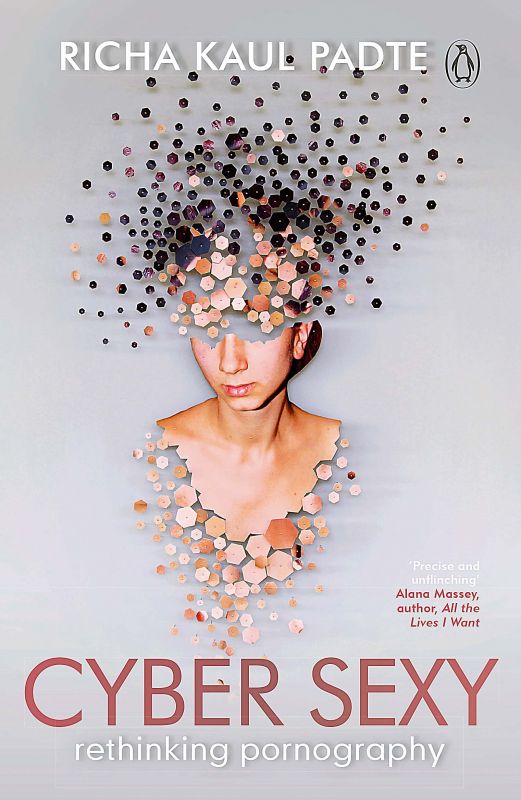Into the dark world of desire

Contrary to popular beliefs, Indian women watch porn. I watch porn. My friends watch porn. The women you work with and party with and commute with watch porn.” While many of us might think that pornography is something sex-deprived men indulge in, the above extract from Richa Kaul Padte’s debut book, Cyber Sexy: Rethinking Pornography, is proof enough that women watch and enjoy sex as much as men do. Taking readers on an unflinching journey into the messy terrain of what it means to seek out sexual pleasure online, Cyber Sexy answers all the questions about women and porn.
Ask the author why she chose to write on a subject that is widely regarded as dark and immoral, and Richa quips, “In 2013, two proposed porn bans were introduced in India — one in the Supreme Court and the other in the Rajya Sabha. And these proposals said a lot of things, but something that kept coming up was that women needed to be protected from porn. And this is not a new or an Indian idea. All over the world, most sexual censorship has happened ‘for’ the supposed benefit of women. But the people behind these measures rarely take into account women’s lived experiences. So ever since these bans were proposed, I was hoping an Indian woman would write a book on pornography. And three years later, I started working on one.”
However, Richa had to do a lot of research to put the book together. “I did three types of research for Cyber Sexy. One, I read a lot of existing material in the form of books, articles and research studies around the issue. Two, I carried out loads of in-depth interviews with people from across the country. And three, I ran two surveys — one about women’s experiences with porn, and the other to figure out how people first learned about sex,” she says.
 Cyber Sexy: Rethinking Pornography by Richa Kaul Padte Penguin Random House India Pp. 264, Rs 399
Cyber Sexy: Rethinking Pornography by Richa Kaul Padte Penguin Random House India Pp. 264, Rs 399
For Richa, pornography doesn’t have a single meaning and might hold different meaning to different people. She believes, “Porn is a subjective experience, and I think any attempt to pin it down to a particular type of media ends up excluding other people’s experiences. What is porn to me may not be porn to you, and it’s these differences in tastes and desires that I explore in the book.”
Richa interviewed scores of people to understand the society’s mentality towards sexual experiences, especially watching porn. The author was impacted by many people she interacted with. However, she shares, “One story I really liked was that of Aaliyah, a women in her thirties, who spoke to me about how sexting and camming with strangers online allowed her to gain control over her sexuality and accept her body the way it was. Aaliyah recalled when she first posted a video of herself masturbating online, and how it got thousands of views. She calls it ‘one of my most empowered moments in life’. We often think of women’s empowerment in certain ways — the right to work, to vote, etc — but sexual empowerment is very important for women too.”
At one point the book explains how, majorly, the “acceptable” sexual behaviour in our society, which is a heterosexual relationship, is defined by men, where women and other minorities (LGBT, differently-abled and so on) have no agency. Explaining her point, the author says, “Actually, I don’t think that women and minorities have no agency! To the contrary, I think agency is something you inherently have — it’s a person’s capacity to live with autonomy and make their own choices. I do think, however, that people who have power try and restrict the agency of those who don’t. And in the case of sexuality, this often plays out in the form of upper caste cis gender heterosexual men deciding what sexual behaviours are ‘acceptable’, and then stigmatising and criminalising those that aren’t. However, that doesn’t mean that women or sexual minorities don’t have agency; but it does mean that we have to work against an oppressive system to exercise it.”

